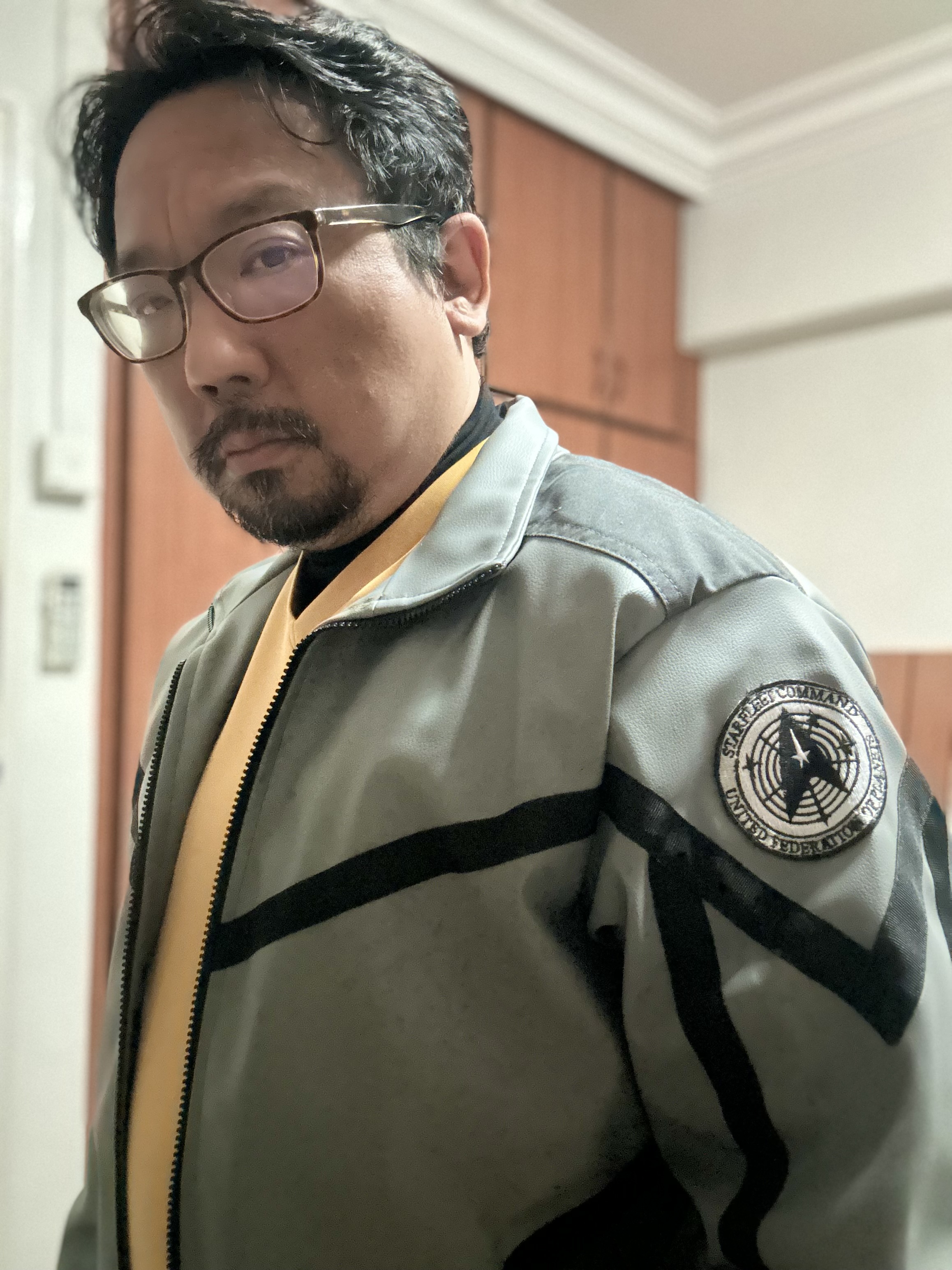This is the Daystrom Institute Episode Analysis thread for Strange New Worlds 2x03 Tomorrow and Tomorrow and Tomorrow.
Now that we’ve had a few days to digest the content of the latest episode, this thread is a place to dig a little deeper.
I really like it, for a few reasons. In no particular order:
-
I wasn’t sold on this newest iteration of Kirk yet, but after this episode I’m wholly on board. We got to see some of the the swagger and the bravado that define James T. Kirk, but with a unique type of charm all his own as well.
-
I also wasn’t the biggest fan of La’an, because she just hadn’t the screen time yet to feel like a person. But in an episode all about the looming figure of her ancestry, we ended up seeing that she’s much more than just a tie-in to the most popular TOS arch/villain.
-
Seeing an episode take place in the 21st century but not in Los Angeles was pretty cool, and being a Canadian I enjoyed that they took advantage of filming in Canada by not trying to pretend Toronto was New York or something. And then even leaning into the Canada thing with the Roots store and the Canadian currency… it made me happy.
-
I really appreciated the nod to the Temporal Cold War, and how it’s likely responsible for the discrepancies between our timeline and the one Star Trek depicts — and the introduction of the Whovian-esque concept of “fixed points”, or events that Time insists on making happen no matter what effort is put into averting them.
-
I enjoyed the appearance of Captain Spock without blinking an eye… until, deep within a long comment, someone wondered how Sarek and Amanda got together in that timeline. The thought has been entertaining me for days.
not a star trek fan, but i am a shakespeare fan! curious how the themes of this episode correspond to macbeth (where the title line comes from)
That particular passage from Macbeth takes place in the context of a guard telling Macbeth that Lady Macbeth is dead. Macbeth then launches into a musing about the inevitability of death and the banality of life:
Tomorrow, and tomorrow, and tomorrow,
Creeps in this petty pace from day to day,
To the last syllable of recorded time;
And all our yesterdays have lighted fools
The way to dusty death. Out, out, brief candle!
We are all heading towards death, slowly but surely, and life is just one identical day after another, our past just marking time to the fate that waits us all.
Life’s but a walking shadow, a poor player,
That struts and frets his hour upon the stage,
And then is heard no more. It is a tale
Told by an idiot, full of sound and fury,
Signifying nothing.
In this speech, as he awaits Macduff’s assault, Macbeth laments that our lives are meaningless and our actions have no impact in the larger scheme. We appear briefly on this world and then vanish completely, leaving no trace.
Macbeth is all about fate, and destiny. Macbeth had no real ambitions until he was shown a future where he was King, and then he - despite initial moral qualms - was persuaded to take actions to seize that future precisely because he knew it would happen.
But did he believe this was inevitable, that this excused his murder of Duncan and the death of Banquo? His own actions to struggle against the prophecy of his defeat speak that he was at the very least conflicted about whether the future that awaits was one that was destined or one that he created himself.
To a degree, that recalls the predestination paradox. Did Macbeth kill Duncan because he was meant to kill Duncan? And will Macduff kill him now because Macduff was meant to kill him? Did they act that way because it was already writ? Or were those events writ because they acted? Who wrote the script?
DULMUR: Captain, why did you take the Defiant back in time?
SISKO: It was an accident.
LUCSLY: So you’re not contending it was a predestination paradox?
DULMUR: A time loop. That you were meant to go back into the past?
SISKO: Erm, no.
DULMUR: Good.
LUCSLY: We hate those.
Applying the themes of this to the episode: the question is whether the Eugenics Wars are meant to happen, or must we take steps to ensure that they do (or don’t) happen? How free is our will when faced against Time? Do the Eugenics Wars happen because we made it happen or did we make the Eugenics Wars happen because they’re supposed to happen? Who wrote that script?
Sera believes that history is not inevitable. Her Romulan computer simulations tell her that if she prevents the war, then the Federation will not arise - and to a degree, she’s correct (for now), because alt-Kirk’s presence shows that happens. But she is also aware that there are certain things that want to happen, so like Macbeth she struggles against that inevitability by trying to persuade La’An to let her kill Khan.
In a similar way, La’An is also struggling against her perceived destiny as a descendant of Khan. La’An is afraid that she will become dangerous like him, so she tries to deny that as well although Neera told her that her genetics are not her destiny.
So what we have here is the same question raised in Macbeth: are we all fated, locked into our roles and places in history? Do our actions lead us inevitably on the path to death, and our struggles mean nothing in the larger analysis? These are not questions to which Shakespeare has a neat answer to, and neither does this episode.
La’An accepts that she is Khan’s legacy as much as the Eugenics Wars are - but does that mean she accepts that she’s dangerous or will she still guard against it?
Sera refused to accept she couldn’t stave off the Eugenics Wars even though she’s been trying and not succeeding for 30 years and died because of it. Was she fooling herself? Or did she go down in the same way that Macbeth went down fighting Macduff even though he knew he would fail - because sometimes you just don’t bow down to fate no matter how hopeless it seems?
MACBETH: I will not yield,
To kiss the ground before young Malcolm’s feet,
And to be baited with the rabble’s curse.
Though Birnam Wood be come to Dunsinane,
And thou opposed, being of no woman born,
Yet I will try the last. Before my body
I throw my warlike shield. Lay on, Macduff,
And damned be him that first cries, “Hold, enough!”
The future comes for all of us in the end. How we decide to face it tells us who and what we are.





